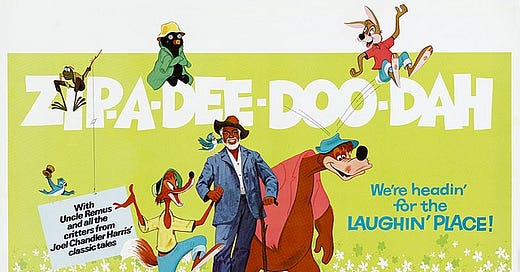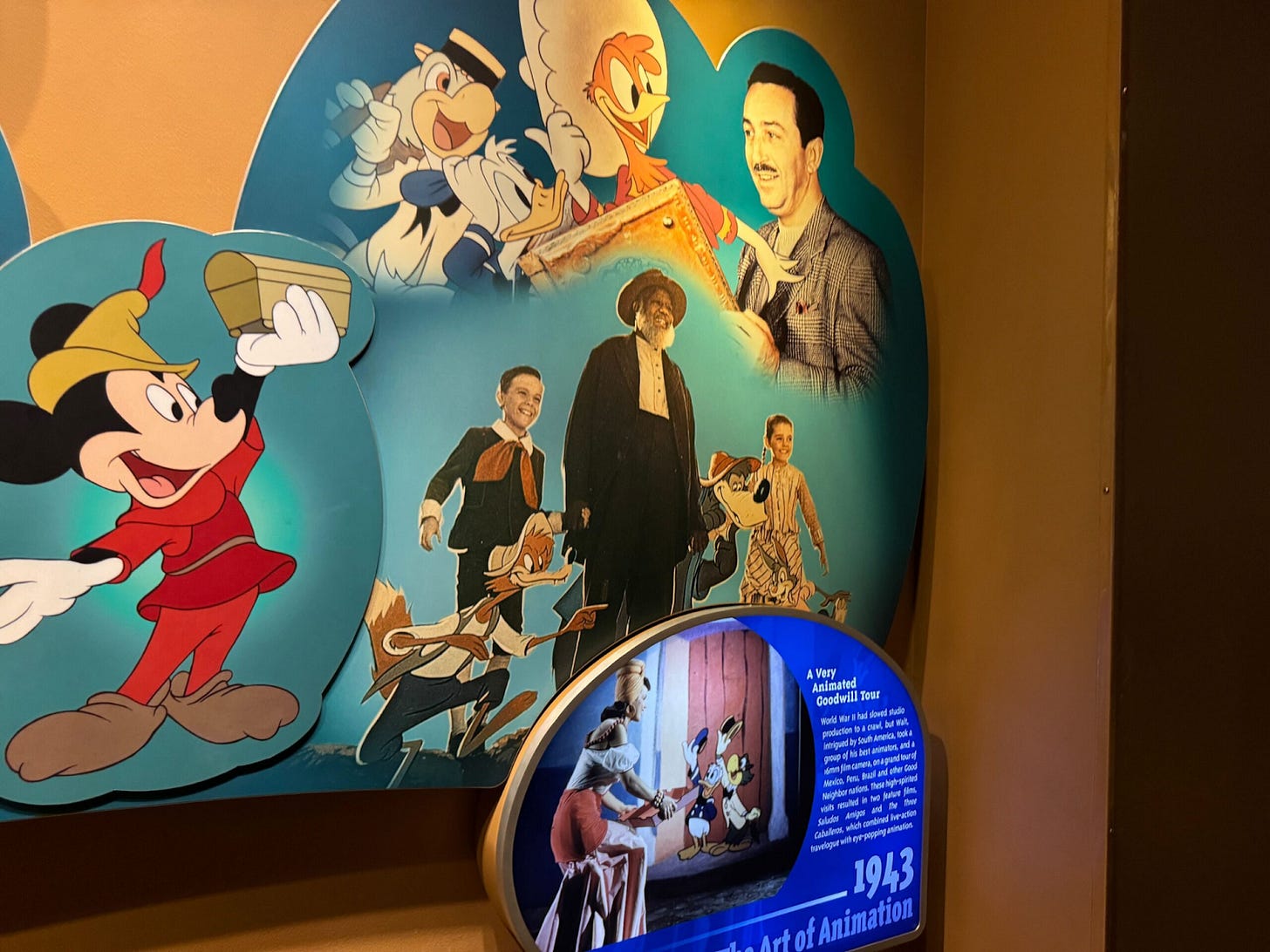Leftists Axe Minority Icons While Preaching Inclusivity
It is emblematic of white liberals to create an empty space and call it progress, to remove those things that make them uncomfortable without understanding why the thing was there at all.
The left hates racial minorities.
That might seem odd given that the only thing they ever talk about is how anti-racist they are. But it’s true. Whenever they see a minority featured on a product, they fly into a rage and insist it must be removed.
The most recent example of this desire to damnatio memoriae a racial minority is brought to you by the House of Mouse. Disney purged the last vestiges of the controversial “Song of the South” from Disney World by removing a display in the Walt Disney Presents exhibit featuring characters from the film.
The display formerly featured actor James Baskett as Uncle Remus along with the film's child actors and animated animal stars, but has since been replaced with characters from “The Adventures of Ichabod and Mr. Toad.”
Disney has long had a complicated relationship with “Song of the South,” a movie many accused from the get-go as being a racist whitewash of the post Civil War South.
The movie features Baskett as jolly storyteller Uncle Remus, a fictional narrator featured in a compilation of black folk tales from the Deep South during Reconstruction. “Uncle Remus, His Songs and His Sayings: The Folk-Lore of the Old Plantation” was written in the dialect of Deep South blacks, a dialect that Baskett and the other black actors used in the movie.
But some, mostly white liberals, complained the film was racist. Little by little, any references to the film around Disney Parks were erased, and with them Baskett’s accomplishments.
Which is a shame, since Baskett’s performance as Uncle Remus won him a very unique prize. For his portrayal of the kindly storyteller, Baskett earned an Oscar in 1948, becoming the first black man in the history of the awards to do so.
Inscribed on the statue was the phrase “For his able and heart-warming characterization of Uncle Remus, friend and storyteller to the children of the world, in Walt Disney's Song of the South".
Baskett was clearly proud of the work he’d done, and found the whole discussion over whether the movie was racist somewhat frustrating. “I believe that certain groups are doing my race more harm in seeking to create dissension than can ever possibly come out of Song of the South” he told those who criticized the film.
Those sentiments were echoed by his co-star, actress Hattie McDaniel, who also appeared in oft-maligned “Gone With the Wind.” In an interview with The Criterion, McDaniel said “If I had for one moment considered any part of the picture degrading or harmful to my people, I would not have appeared therein.”
Both of the actors who apparently should have been offended by the movie were perfectly comfortable doing it, but the white liberal was not. And so now the legacy of a great black actor has been razed from the historical record.
Disney’s decision to nix Baskett is just the latest move by white leftists to remove minorities from public life based on a faulty belief their depictions are racist.
Remember the huge kerfuffle over the Redskins imagery and name for Washington D.C.’s football team? Now the family of the chief formally depicted on the team’s gear has come out and said they want his likeness returned.
"The fans want him back and we want him back," the chief’s great nephew Thomas White Calf told FOX News. “I’m proud of him. The Blackfeet are proud of him."
And while the consensus from white liberals was, yet again, that the name was racist, that sentiment was far from unanimous. Roy Hawthorne, a WWII Navajo code talker, asserted the name was not slur, but a symbol of loyalty and courage.
"My opinion is that's a name that not only the team should keep, but that's a name that's American,” he said.
Or consider the decision to remove Aunt Jemima from the syrup bottle and the Land O’ Lakes Indian from the butter box.
Aunt Jemima was based off a real woman, former slave Nancy Green, who rose from poverty to become the spokeswoman for the R.T. Davis Milling Company. Green used her position to push for anti-poverty measures and civil rights for blacks.
And the Indian? Drawn by an Ojibwe man who wanted to make her a shining example of the women in his culture. In an op-ed for The Washington Post, the son of the original artist wrote that Mia, as she was known, was popular with women in his tribe. “Mia seems to have stirred a sense of remembrance and place, one that they found reassuring about their existence as Native American women,” he said.
Where once there were depictions of minorities in the world, there are now voids. These images have been banished as racist, instead of heralded as icons of the great works racial minorities have contributed to American society.
It is emblematic of white liberals to create an empty space and call it progress, to remove those things that make them uncomfortable without understanding why the thing was there at all.
To return to where we began, I recently had the great pleasure of watching “Song of the South” and found Baskett’s portrayal of Uncle Remus utterly magical. I turned to my wife and said I couldn’t wait to show my son the movie and expose him to the wonderful animated world.
The left might want us to condemn these men and women to history. But I’ll be damned if I let them.





